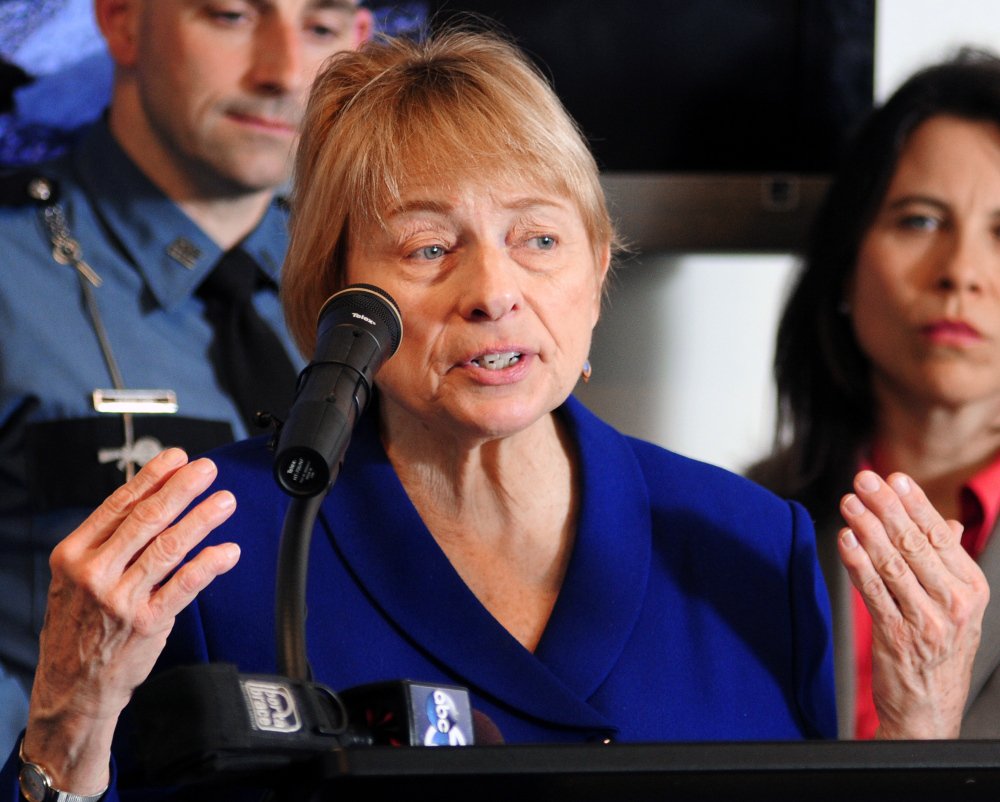If you think our political system is screwed up, wait until the June 12 primaries. Mark your calendar for March 5. Sometime on or before that date, if petitioners succeeded in obtaining enough legitimate signatures from voters, Secretary of State Matthew Dunlap will certify ranked-choice voting for the June primaries.
The citizen referendum process will have forced ranked-choice voting in the primaries. Because the Legislature rejected the voters’ approval in November 2016 of ranked-choice voting, a convoluted result appears to have been triggered. To avoid making you more confused, I won’t review further how we got here, but this is undoubtedly where we will be on June 12. Maine will make national history. Enrolled Democrats and Republicans will engage for the first time in selecting their party nominees by ranking their choices rather than voting for one candidate. This event will come at a time when a double-digit list of gubernatorial candidates are likely to qualify for the ballots. Chaos is totally predictable.
Instead of clear winners being decided on election night, or at least the next day, ballots will have to be collected by the Secretary of State and ranked-choice computations will be made at the State House. This will probably take weeks.
The same system will be employed for candidates for state House of Representatives and Senate, as well as U.S. Senate and House seats. The effect on those races will be more muted, however, because there typically aren’t many races with more than two candidates.
Now the kicker.
In the November general election all contests may revert to the historic system — “winner takes all” — because on June 12, primary day, voters will also decide if ranked-choice voting will prevail in future elections. Confusion reins supreme.
But for the time being, it is what it is — so let’s take a brief look at the primaries for governor.
Following are the most likely viable candidates, with the filing deadline set for March 15. Most of them have already appeared in a debate. Keep in mind that after we know all candidates who have qualified for inclusion on the ballot, there will be only three months remaining for an effective campaign.
The leading Democratic candidates are: Attorney General, and party leader, Janet Mills; attorney, former congressional candidate and decorated combat veteran Adam Cote; former House Speaker Mark Eves; state Sen. Mark Dion; and LGBT champion Betsy Sweet.
The leading Republican candidates are: Shawn Moody, businessman and former independent gubernatorial candidate; Senate President Mike Thibodeau; Senate Majority Leader Garrett Mason; House Minority Leader Ken Fredette, and former Health and Human Services Commissioner Mary Mayhew.
Early favorites are considered to be Mills and Cote for the Democrats, and Moody for the Republicans, for reasons including their significant political organizations and early fundraising support.
In the case of Mills, she has many partisan chips she can call in. She can raise money and make the case that it is time for Maine to elect its first female governor. Her primary votes will come from the progressive wing of her party, and they are the most active. If you like U.S. Sens. Bernie Sanders and Elizabeth Warren, then you will be for Mills.
However, she does face a formidable opponent in Adam Cote. This decorated combat freedom fighter leads all candidates in fundraising and is generally seen as a more populist candidate.
Cote should not be considered unelectable just because he previously lost to incumbent U.S. Rep. Chellie Pingree, D-1st District, who is extremely popular in her very liberal district. Actually, Cote would fare much better with independents and moderate Republicans in a November contest against the eventual Republican nominee. But this primary could be a redux for Cote, with Mills more currently in tune with her party and likely the recipient of a strong gender vote.
Ranked-choice voting makes it more difficult to predict, but Cote will not be the second choice of many of those who rank Mills first.
On the GOP side, in a conservative Republican primary, the outgoing governor’s support and organization is big. Gov. Paul LePage undoubtedly enjoys strong support among a large majority of primary-voting Republicans. LePage’s daughter Lauren and LePage consultant Brent Littlefield headline the Moody campaign.
Thibodeau, Mason, and Fredette will split the ranked-choice vote of those who favor incumbent officeholders, while Mayhew has been jettisoned by LePage. Moody becomes the nonpolitician, businessman reincarnation of LePage and Trump.
It’s Mills vs. Moody in November. Perfect political choice: progressive female vs. conservative male.
Don Roberts is a veteran broadcaster, writer and political consultant. He has served Augusta as a city councilor at-large, charter commission vice chairman and utilities district treasurer.
Send questions/comments to the editors.



Success. Please wait for the page to reload. If the page does not reload within 5 seconds, please refresh the page.
Enter your email and password to access comments.
Hi, to comment on stories you must . This profile is in addition to your subscription and website login.
Already have a commenting profile? .
Invalid username/password.
Please check your email to confirm and complete your registration.
Only subscribers are eligible to post comments. Please subscribe or login first for digital access. Here’s why.
Use the form below to reset your password. When you've submitted your account email, we will send an email with a reset code.